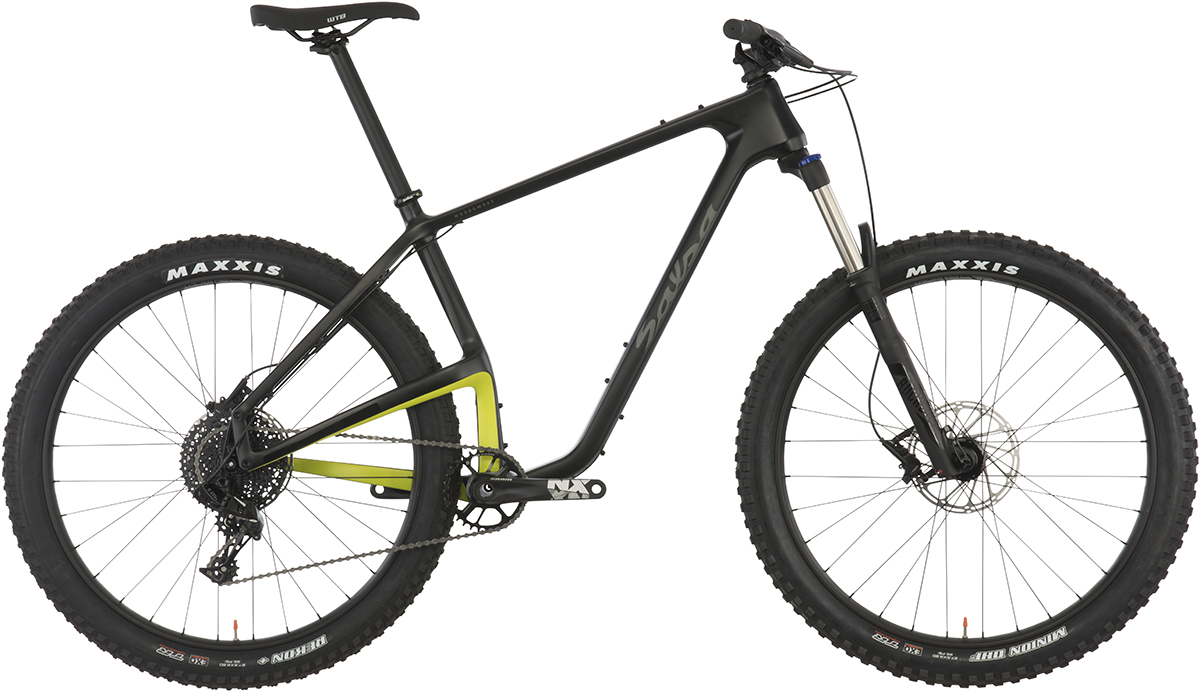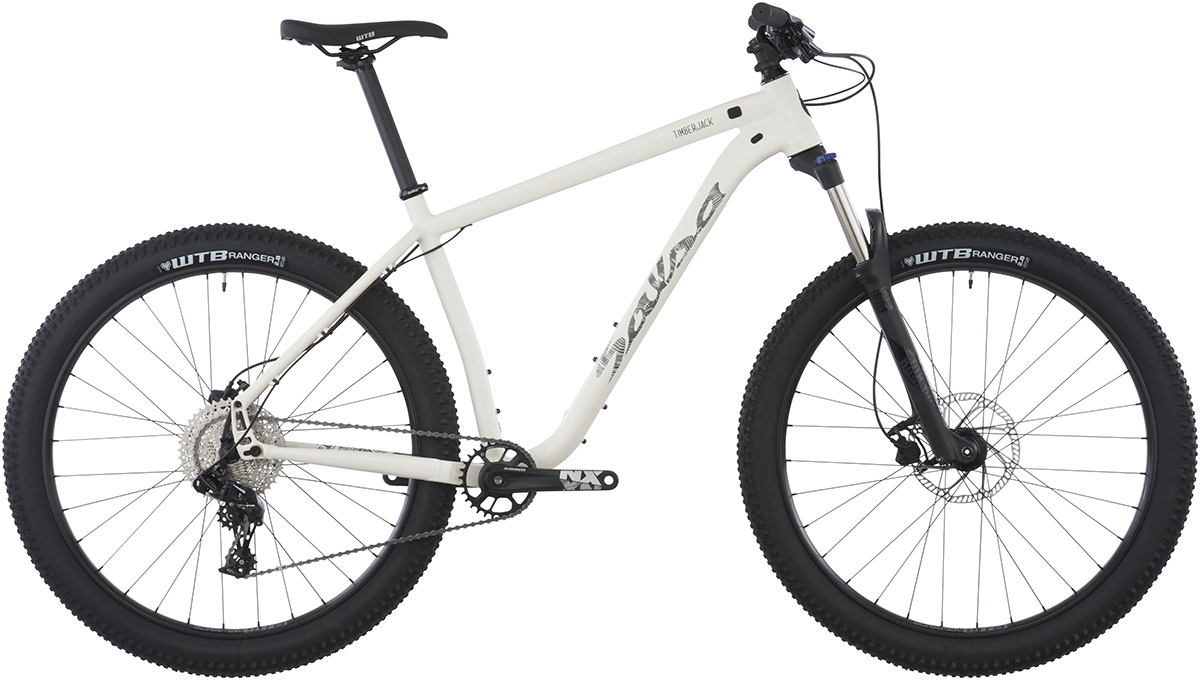Frostbike ’18: Bike and cockpit updates from Salsa Cycles
Originally posted on February 19, 2018 at 10:12 amSalsa has traditionally been a leader in categories like fat and gravel bikes, but this year, a big goal for the brand is to become more competitive in its trail bike category. With that in mind, a focus for the brand recently has been refining its trail bike lineup as well as trying to bring price points lower without sacrificing quality in order to allow more people to have access to its bikes.
At Frostbike in Minneapolis this year, we met with Salsa’s Product Managers and Developers as they walked us through the 2018 lineup and what has changed.
The Deadwood, which launched last year as a 29plus short-travel full-suspension rig (see our review here), has gotten quite a few tweaks for 2018. Instead of 100 mm of travel up front, it’s now spec’d with a 120 mm front fork, while retaining 90 mm of travel in the rear. The axle to crown length on the front fork stays the same with the switch, so the geometry doesn’t change. Another spec update is 29 x 2.6 inch tires instead of 29 x 3.0, though the frame stays the same so it can still accommodate the wider meat if you so desire.
One more change to the Deadwood lineup is the addition of an aluminum-framed model, which comes in at $2799 with SRAM NX.

Other small changes to the Salsa bike line-up for 2018 include a wider rim and tire combo on the Redpoint, Salsa’s 27.5 enduro-style bike (i35 rim with 2.5 inch Maxxis Minons), and a couple new colorways for the Timberjack and Woodsmoke.



Salsa Cockpit
Salsa also introduced changes to its cockpit lineup, most notably carbon versions of all of its existing drop and flat bars. All bars now come in three different versions: Regular, Deluxe and Carbon.
The Deluxe bars use 7050-T6 series polished aluminum while the lower level regular bars use 6061-T6 bead blasted aluminum. In general, there’s about a $25-$30 price difference between the regular and Deluxe versions across the board for all the bar models. The Carbon drop bars are about 75 grams lighter than the aluminum and will set you back $215, while the Carbon flat bars come in at $140.

Salsa’s drop bar lineup includes the Woodchipper, it’s distinctively-flared signature mountain drop bar; Cowbell, a relatively traditional drop bar; and the Cowchipper, which bridges the gap between the Cowbell and Woodchipper. On the flat bar side of things, the Salt Flat is a zero-rise bar designed more for endurance, cross-country and dirt touring, while the Rustler offers a 20 mm rise (15 mm on the Carbon version) and is designed to be ridden more aggressively. Changes to the flat bars for this year include an 800 mm width versus 760 in the past, so now both bars are offered in 750 and 800 mm options. The Salt Flat also got a wider 31.8 mm clamping section to mount aero bars and/or an Anything Cradle to the bars for endurance riding and touring. On the other hand, Salsa increased the stiffness of the Carbon Rustler by 15%.

Salsa is also offering the Guide seatpost in all three versions, coming in at $95 for the Carbon, $65 for Deluxe and $50 for the regular Guide.
Check out more details, pricing and full specs on Salsa’s website.